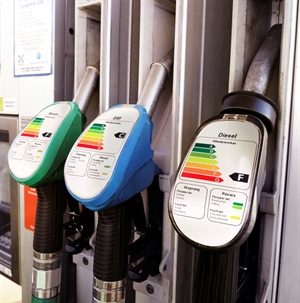Public health professionals call for health warning labels at points of sale of fossil fuels
Tue 31 March 2020
View all news

A group of UK and international public health professionals and academics have called for warning labels to be displayed at points of purchase of fossil fuel energy - petrol stations, energy bills, airline tickets etc - emphasising the risks to health of fossil fuel use. The group's call was published in an article in the British Medical Journal.
In the introduction of their paper, the group says: "The use of fossil fuels should be rapidly reduced to keep the global mean temperature increase to well below 2°C above pre-industrial levels—a core goal of the Paris Agreement on climate change.
"We propose a low cost, scalable intervention to facilitate change in individuals’ and society’s views and behaviour: warning labels at points of purchase of fossil energy or services dependent on large amounts of fossil fuel...They should state clearly that continuing to burn fossil fuels worsens the climate emergency, with major projected health impacts increasing over time."
The authors include academics from the Universities of Washington, Berkeley, Cardiff, Londons School of Hygiene and Tropical Medicine and a former UK regional director of public health.
The intervention comes at a time when the impacts of public health messages and other communications in relation to the COVID-19 pandemic and the impacts on people's willingness - or otherwise - to change behaviour are being widely discussed.
The researchers say that since 1969, increasing numbers of countries have required cigarette packets to carry health warnings. 118 countries now require cigarette packets to include graphic pictures alongside stark health warnings and that these warnings can change attitudes and behaviour, providing a critical contribution to effective tobacco control policy.
The researchers claim that the result of these messages is that smoking is "no longer viewed as a normal lifestyle choice, but as an addiction which harms the individual and those around them through exposure to second-hand smoke".
In spite of this change in social attitudes, however, it's still notable that around 78,000 deaths a year - 213 people a day - in the UK are attributable to the effects of smoking according to the latest figures from the NHS.(Link)
The researchers cite a report from the US National Academy of Sciences which says that fossil fuel use also harms others through ambient air pollution, accounting for about 3.5 million premature deaths per year worldwide, as well as through climate change, which increasingly threatens the health of current and future generations. (Link)
The BMJ paper notes that barriers to shifting consumer behaviours towards zero-carbon options include: "low awareness, habit, perceived cost, inconvenience, and “psychological distance”—the perception that the issue affects other people, places, or times, or is uncertain".
"Warning labels" they say "connect the abstract threat of the climate emergency with the use of fossil fuels in the here and now, drawing attention to the true cost of fossil fuels (the externalities), pictorially or quantitatively.
"They sensitise people to the consequences of their actions, representing nudges, designed to encourage users to choose alternatives to fossil fuels, thus increasing demand for zero-carbon renewable energy."
The paper notes that in Sweden, eco-labels will be mandatory from May 2020. The labels will show ‘climate impact’, the raw materials used for the fuel, and their origin. They are part of a package to reduce fossil fuel use, including tax on new high emission cars and subsidy for low emission ones, but without direct reference to health.
By contrast, they report that Cambridge, Massachusetts voted in January to make information about the environmental and human health impact of fossil fuel use mandatory on all self-service fuel pumps. "This explicit reference to health is likely to increase the labels’ effectiveness, because messages about the climate emergency framed around health tend to be more persuasive than environmentally framed messages."
Related Links
< Back to news list